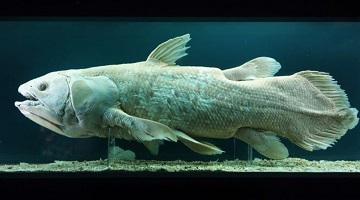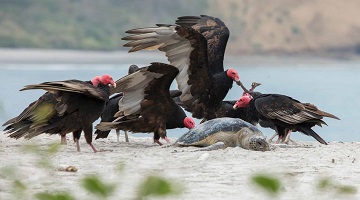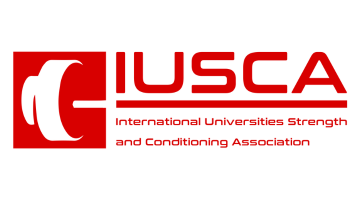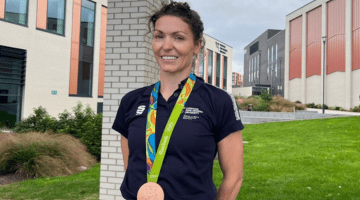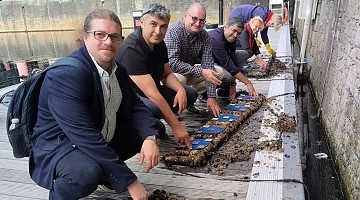About this course
LJMU's Sport Physiology and Performance is geared towards both classical physiology and research at the forefront of molecular exercise physiology.
- The School of Sport and Exercise Sciences is ranked 6th for Sports Science (QS World University Rankings 2024)
- Study on a programme developed by world-leading researchers in our pioneering School of Sport and Exercise Sciences
- Access state-of-the-art physiology and biochemistry laboratories in our award-winning Tom Reilly Building
- Benefit from a strong emphasis on active learning and practical training
- Look forward to a variety of career opportunities, including working as an Exercise Physiologist in either sport science/athletic support or health assessment contexts, further study at Doctoral level and teaching and lecturing in science
- Study full-time (1 year) or part-time (2 years)
- There has never been a more exciting time to undertake an MSc in Sport Physiology and Performance. Sport represents one of the world's major businesses and scientists have an increasingly prominent role in working with athletes, coaches, governing bodies and industry to help optimise elite performance
This Masters programme is ideal if you want to go on to specialise in physiology-related studies at a doctoral level for academic and professional development or if you aspire to a professional career in exercise physiology.
During your studies you will be provided with detailed knowledge of physiology applied to sport and exercise contexts. The programme is also designed to extend your knowledge beyond 'classical' exercise physiology studies and into the new arena of molecular exercise physiology. The curriculum is informed by a world class research infrastructure with over 20 full-time academic staff and support staff contributing to the taught modules and research dissertation.
You will be provided with extensive practical experience and academic development in fundamental scientific technical including research methods, statistical analysis and scientific communication. As part of your course you will complete a record of competency in physiological assessment, deliver a conference presentation and gain first-hand experience of 'wet lab' techniques including western blotting and proteomics.
Course modules
Discover the building blocks of your programme
Your programme is made up of a number of core modules and a Research Project as detailed below.
Further guidance on modules
Modules are designated core or optional in accordance with professional body requirements, as applicable, and LJMU’s Academic Framework Regulations. Whilst you are required to study core modules, optional modules provide you with an element of choice. Their availability may vary and will be subject to meeting minimum student numbers.
Where changes to modules are necessary these will be communicated as appropriate.
Core modules
Professional accreditation/links
With membership of ASET, the UK’s leading authority on work based and placement learning, LJMU’s School of Sport and Exercise Sciences is committed to providing Work-based and Placement Learning (WBPL) experiences to our students that are quality assured and supported in accordance with best practice guidelines.
Your Learning Experience
An insight into teaching on your course
Study hours
Students will have approximately two hours per module per week of taught material and/or seminar work. This may be supplemented by reflective tutorials during the semester. Private study will cover both time spent studying (for example in the library), collecting data in the laboratory and completing directed tasks and coursework. Taught sessions will provide an orientation to the topic and opportunity for classroom discussion and debate. You will also be expected to read widely using primary sources of reference material.
Teaching methods
Our teaching is delivered primarily through laboratory practicals and student-centred learning techniques, such as problem-based learning.
Applied learning
The programme provides extensive practical experience in both physiology laboratory tests and wet laboratory bench skills. Academic development is also provided in fundamental scientific techniques including research methods, statistical analysis and scientific communication.
How learning is monitored on your programme
To cater for the wide-ranging content of our courses and the varied learning preferences of our students, we offer a range of assessment methods on each programme.
Where you will study
The MSc programme is delivered in the City Campus, in the £28million Tom Reilly Building, which provides world-class sport and exercise science facilities including 800 m2 of exercise physiology laboratory space and 100 m2 of molecular/ biochemistry laboratory space.
Course tutors
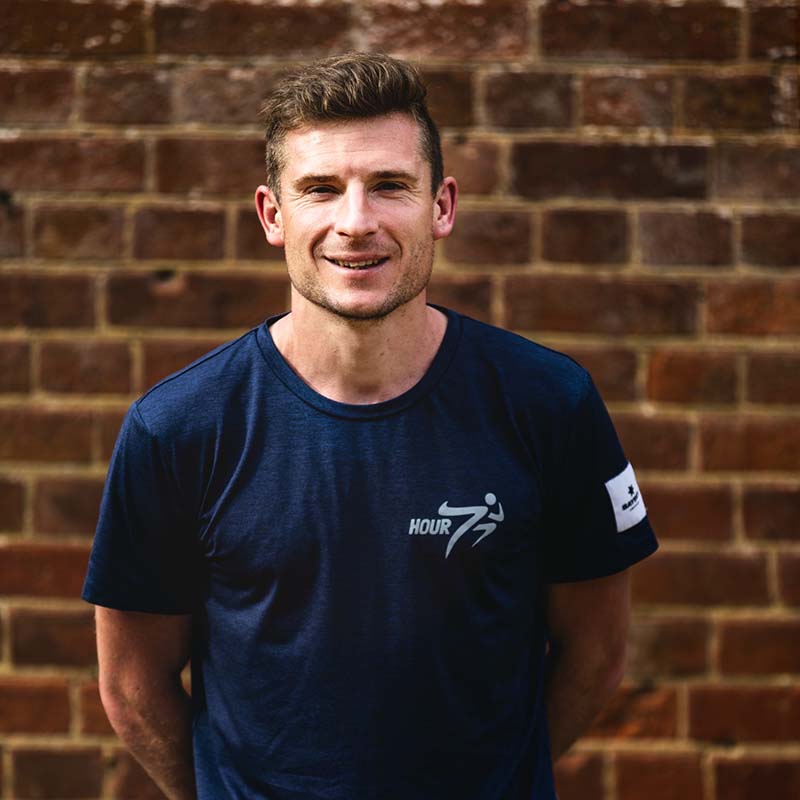
Dr Jamie Pugh
Programme Leader
Dr Low has a PhD in Exercise Physiology from LJMU. Before joining LJMU as a Senior Lecturer, he conducted research in the U.S at the Thermoregulatory Laboratory of the Institute of Exercise and Environmental Medicine, Presbyterian Hospital of Dallas, and the Centre of Sports Medicine and Human Performance at Brunel University. He also worked as the Clinical Research Lead at the Autonomic and Neurovascular Medicine Unit at St Mary’s Hospital, Imperial College London. David is a member of the Cardiovascular Health Sciences Research Group within LJMU’s Research Institute for Sport and Exercise Sciences (RISES). His research investigates thermoregulatory physiology, especially cutaneous vascular function and structure in both healthy and diseased individuals, through collaborative work that trains and mentors colleagues and students and shares knowledge and technical expertise.


I particularly enjoy being at the forefront of research and applied practice. This allows for a truly unique educational environment that is at the cutting edge of industry
Career paths
Further your career prospects
LJMU has an excellent employability record with 96% (HESA 2018) of our postgraduates in work or further study six months after graduation. Our applied learning techniques and strong industry connections ensure our students are fully prepared for the workplace on graduation and understand how to apply their knowledge in a real world context.
Cutting-edge research in Exercise Physiology relies heavily on molecular techniques and it is imperative that future graduates are able to contribute to this high-impact area of exercise science. On graduation, you may go into teaching and lecturing in schools, colleges and universities. Many students choose to continue in education, research or applied sports science, with a significant number continuing their studies to Doctoral level.
Past graduates have taken positions as applied practitioners in sports science support programmes within a variety of professional sports clubs, national governing bodies of sport, or as strategic sport science officers and consultants in professional sport settings.
Tuition fees and funding
- Part-time per credit:
- £56.64
The University reserves the right to increase tuition fees in accordance with any changes to the maximum allowable fees set by the UK Parliament. In the event of such a change, any fee increase will be subject to a maximum cap of 10% of the total course cost as originally stated at the time of your offer.
Fees
The fees quoted at the top of this page cover registration, tuition, supervision, assessment and examinations as well as:
- library membership with access to printed, multimedia and digital resources
- access to programme-appropriate software
- library and student IT support
- free on-campus wifi via eduroam
Additional costs
Although not all of the following are compulsory/relevant, you should keep in mind the costs of:
- accommodation and living expenditure
- books (should you wish to have your own copies)
- printing, photocopying and stationery
- PC/laptop (should you prefer to purchase your own for independent study and online learning activities)
- mobile phone/tablet (to access online services)
- field trips (travel and activity costs)
- placements (travel expenses and living costs)
- student visas (international students only)
- study abroad opportunities (travel costs, accommodation, visas and immunisations)
- academic conferences (travel costs)
- professional-body membership
- graduation (gown hire etc)
Funding
There are many ways to fund postgraduate study for home and international students. From loans to International Scholarships and subject-specific funding, you’ll find all of the information you need on our specialist postgraduate funding pages.
Please be aware that the UK’s departure from the EU may affect your tuition fees. Learn more about your fee status and which tuition fees are relevant to you.
Entry requirements
You will need:
Qualification requirements
How to apply
Securing your place at LJMU
To apply for this programme, you are required to complete an LJMU online application form. You will need to provide details of previous qualifications and a personal statement outlining why you wish to study this programme.
Your university life
From accommodation and academic support to clubs and societies. Find out what LJMU has to offer.
Related Links
Talk to our students
Connect with a current LJMU student for advice and guidance on university life, courses and more.
See what our students are saying
At LJMU we want you to know you’re making the right choice by studying with us. You can see what our students are saying about their experience with us through their reviews on the following websites:
Related Links
News and views
Browse through the latest news and stories from the university
The University reserves the right to withdraw or make alterations to a course and facilities if necessary; this may be because such changes are deemed to be beneficial to students, are minor in nature and unlikely to impact negatively upon students or become necessary due to circumstances beyond the control of the University. Where this does happen, the University operates a policy of consultation, advice and support to all enrolled students affected by the proposed change to their course or module.





















